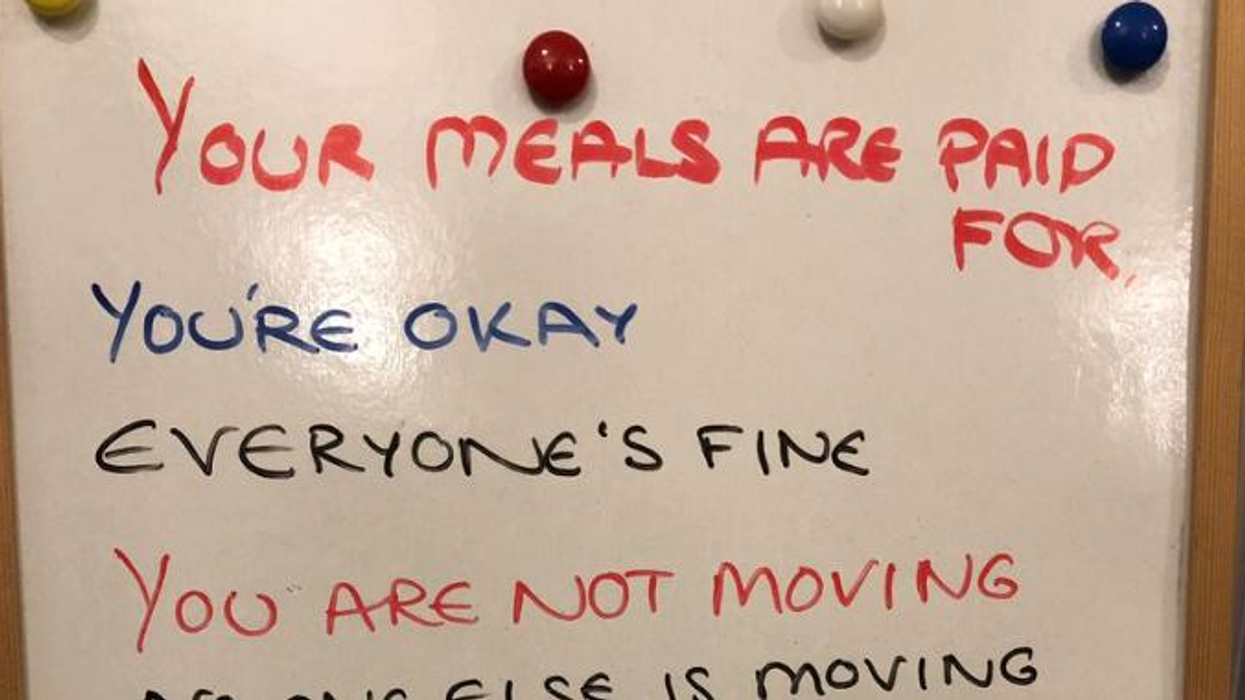
Anyone who’s had a relative or friend with dementia will know just how destructive the group of diseases is. The condition can impair memory, communication, focus, reasoning, and visual perception, transforming a sufferer into what can seem like an entirely different person in a matter of seconds.
Dr. Philip Grimmer, from Wiltshire in the United Kingdom, was visiting one of his patients with the disease when he saw the words of reassurance written on a whiteboard by a daughter to her mother that he decided to share on Twitter.
“Words of reassurance left for an elderly lady with dementia by her daughter,” Dr. Grimmer explains. “A simple white board left in her sight line in her sitting room. Helped to reduce constant anxious phone calls.”
Words of reassurance left for an elderly lady with dementia by her daughter. A simple white board left in her sigh… https://t.co/kBuKdHyWf2
— Philip Grimmer (@GrimmPhil)
1548492713.0
The white board reads:
Your meals are paid for
You’re okay
Everyone’s fine
You are not moving
No-one else is moving
Keep drinking,
it will help your memory
You don’t owe anyone any money
You haven’t upset anyone.”
Dr. Grimmer’s tweet attracted over 40,000 likes and 7,000 retweets. Dr. Grimmer explained to the BBC that he’d initially posted the tweet to share it with his colleagues. “I’d not seen anything like it before in thousands of house visits. It’s caring, reassuring and sensible – it’s just such a simple idea,” he added.
Other social media users took the opportunity to share how they help those suffering from the disease.
@nicknoxx @GrimmPhil Wow – so other people are experiencing the pre-8pm bedtime issues too. Thanks so much for shar… https://t.co/ZdBy1TSEYf
— Caroline Aliwell (@CalAliwell)
1549103995.0
@Kiml71 @GrimmPhil When I was in hospital a few years ago an elderly man was walking in and out of the bays asking… https://t.co/lQFrwk0n8u
— Theodora Dickinson (@TheaDickinson)
1548606108.0
Dr. Grimmer’s image was also posted on Reddit, where it received more than 112,000 upvotes.
Reddit user Kryptosis suggested that “you can use the bathroom whenever you like” be added as a former relative with dementia believed they couldn’t use the bathroom.
Hailley, a nurse from Canada, added:
“I had one resident where I worked who would be in tears because he was worried about his children and having to pay for his meals.”
“It was sometimes tough to reassure him. We had to call his children to talk to him a few times. It was hard to see him so upset.”
She expanded on her comment for the BBC:
“I have seen people talk down to those with dementia, which is just not right. They are still adults who know when they are being treated differently.
“People just do not know how to interact with them. It takes patience and you may not be able to have a conversation with them in the same way you would with someone without dementia.
“The whiteboard addresses what gets asked the most [by those] in long-term care.”
